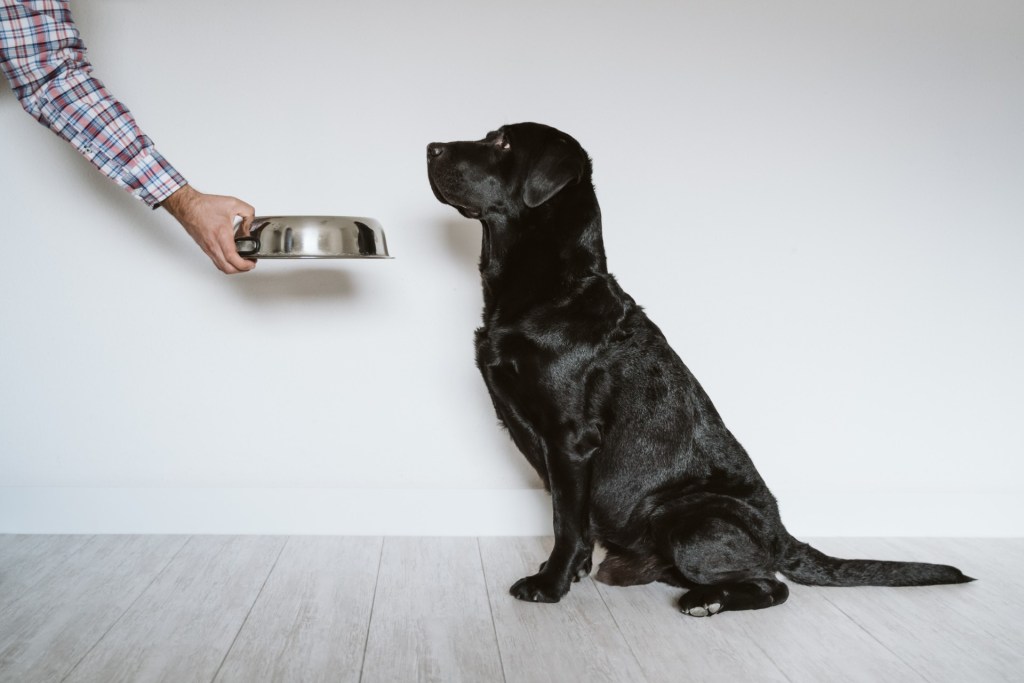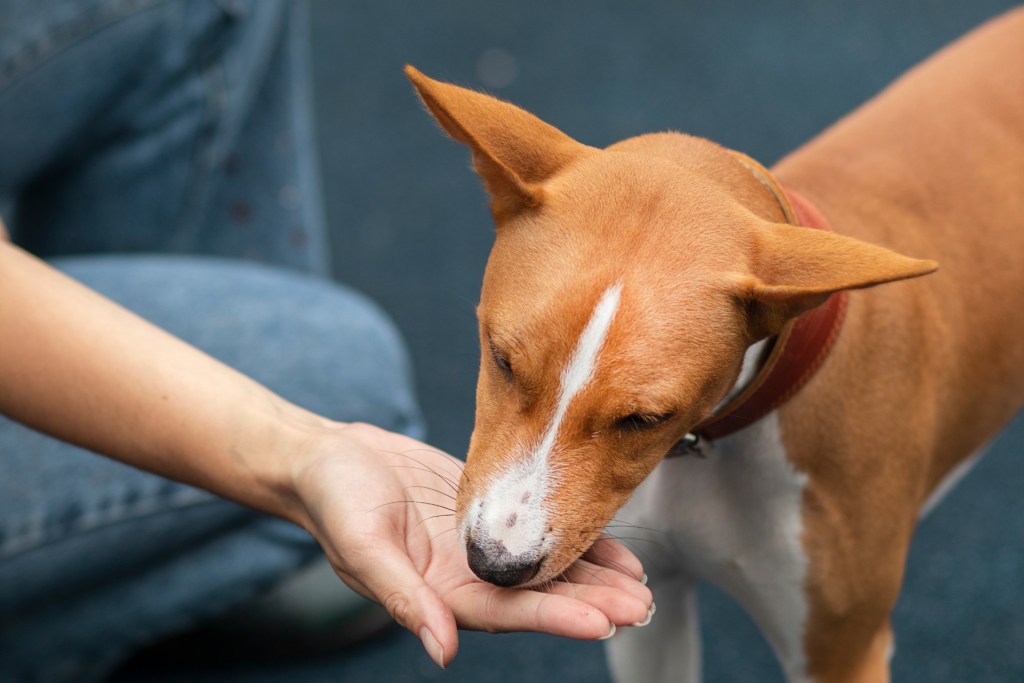It can be quite tempting to share your food with a cute, begging dog. We just love sharing “people food” with dogs — from chicken and rice to a nice, crunchy carrot and lots in between. But not everything you eat can be eaten by a dog. Let’s find out about dogs and spicy foods, as well as what people foods are safe for dogs.

Dogs generally don’t enjoy spicy food
You may have speculated what flavors dogs acquire from spice. You may have questioned whether they even have the stamina to tolerate it. Similar to humans, dogs aren’t programmed to especially enjoy bitter or sour tastes. Spicy foods are bitter and can sometimes be sour, so chances are your dog will not enjoy it. Dogs don’t have as refined a sense of taste as do humans, yet they are still sensitive to the effects of eating spicy foods, such as increased sweating and salivation.
Can dogs eat spicy food?
While a few dogs may actually like to eat spicy foods (and they are surely in the minority), should dogs be fed those foods? Technically, foods such as hot peppers alone aren’t toxic to dogs and can be fed to them, but they probably shouldn’t be. Spicy foods can cause gastrointestinal issues, such as pain due to inflammation, diarrhea, gas, and excessive thirst.
Dogs are more sensitive to salt than humans, though, and many spicy things are also salty. Consuming too much salt is relatively easy for a dog to do and can cause dangerous dehydration. Additionally, most spicy dishes are made with ingredients that are not safe for dogs to eat, like garlic or onions. Those two ingredients are notoriously bad for dogs and can cause anemia even in small quantities.
Can dogs taste spicy food the way we do?
Nutritional experts believe that dogs don’t experience the flavor of spices the way we do because they have fewer taste buds. Humans have 9,000 different taste buds while canines have about 1,700. So, while dogs might taste the bitter flavor that accompanies spicy foods, it won’t taste as strong to them. However, as mentioned previously, dogs will certainly experience the burning sensation that accompanies spicy foods.
Some spicy foods may provide health benefits
When given in moderation, some spices offer health benefits to dogs, veterinary professionals believe. But to be on the safe side, check with a vet before adding any spice or supplement to your dog’s diet.
The most common spices and foods thought to offer health benefits to dogs include:
- Cinnamon: When added to the diet in small doses, cinnamon is believed to improve brain function, digestion, and circulation.
- Bell peppers: While you should never give your dog hot peppers such as jalapeños or chili peppers, veterinary experts say that bell peppers offer health benefits to dogs. They are rich in vitamins A, E, B6, and lutein. Bell peppers are also a great source of vitamin C and beta-carotene, which help boost a dog’s immune system.
- Turmeric: There’s evidence that turmeric acts as an anti-inflammatory and can help manage pain in dogs living with arthritis.
Which foods are OK to give to dogs? Which aren’t?
Any human food given to a dog should be fed in moderation. Any cooked food should be left to cool to room temperature before feeding your dog to prevent burns. Be careful not to introduce your pet to more than one food at a time in case they develop an allergy. If they are fed a singular food, it is easier to identify what is causing the allergy.
If you want to feed your dog people food, follow these tips:
- Some healthy “people food” you can feed your dog is unseasoned, deboned, skinless meat, such as turkey and pork. Meat should also be free of excess fat. Ham is not recommended.
- Another source of protein for your dog is cooked, skinless, deboned fish, like salmon and tuna. Sardines can be fed to dogs without the need to debone the fish.
- Some other animal products are also OK to feed dogs, including cottage cheese, plain unsweetened yogurt, cooked eggs, and small amounts of honey.
- For a vegetarian-friendly protein treat, some unsalted nuts are safe for dogs, particularly peanuts and cashews. Macadamia nuts, however, are a huge no-no since they are poisonous to dogs.
- Dark leafy greens — including kale, swiss chard, and collard greens — are another plant-based food suitable for dogs.
- And contrary to popular belief, dogs don’t need a grain-free diet and actually need some carbohydrates in their diet. But just like in humans, highly processed grains have little to no nutritional value for dogs. Instead, opt for nutrient-dense grains like hominy, oatmeal, or quinoa.

Do your research
Although a range of human foods can be fed to dogs and are even good for them, the same cannot be said for all foods. Again, many spices cause stomach issues or are even dangerous to dogs, including garlic, salt, and black pepper.
Some of the other foods that should never be given to dogs are:
- Avocados
- Chocolate
- Coffee
- Any other food or beverage with caffeine
- Grapes
- Animal fat or bones
- Raw meat, fish, or eggs
Always do research on whether a food is safe to feed your pet beforehand. If your dog consumes something they shouldn’t, food or otherwise, call the ASPCA Animal Poison Control Center at (888) 426-4435.
What to consider before feeding people food to your dog
- Adding people food to a dog’s diet can upset the dog’s digestive system. It can cause vomiting and diarrhea and be especially problematic for growing puppies.
- Feeding dogs food from the table creates a bad habit. It can lead to counter surfing or stealing from the garbage cans. There’s always a danger that one day your dog will eat something toxic.
Occasionally feeding your dog the same food you’re eating can be a nice way to bond. But as we’ve learned, it can also be a gateway to something more sinister. Keep your furry friend safe by only feeding them foods that fit the above criteria.


